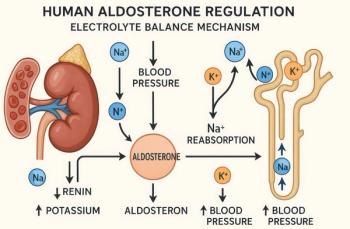
Would Annual Blood Pressure Checks Reduce False Positives?
Measuring a patient’s blood pressure once a year instead of at every visit would reduce the rate of false-positive results in patients who do not have hypertension and eliminate the need for further workup in many patients.
Measuring a patient’s blood pressure once a year instead of at every visit would reduce the rate of false-positive results in patients who do not have hypertension and eliminate the need for further workup in many patients, according to a study.
Researchers at the Mayo Clinic conducted a retrospective case control study of 68 patients who had hypertension and 372 patients who did not. During a 5-year period, 4287 blood pressure measurements were recorded; 29.6% of patients who did not have hypertension were found to have had at least 1 blood pressure reading higher than 140/90 mmHg.
Almost 40% of the blood pressure readings would be retained with an annual screening strategy. In addition, when screened once a year, only 18% of patients who did not have hypertension had a measured blood pressure higher than 140/90 mmHg. However, the annual screening method would not have identified 7.4% of patients with hypertension on or before their diagnosis.
Specificity was was 82% for annual reading compared with 70.4% for usual practice. There was no difference in sensitivity between the methods.
The researchers noted that there is a difference “between obtaining a blood pressure reading for hypertension screening purposes and obtaining a blood pressure reading because it is clinically relevant.”
The study,
Newsletter
Enhance your clinical practice with the Patient Care newsletter, offering the latest evidence-based guidelines, diagnostic insights, and treatment strategies for primary care physicians.

































































































































